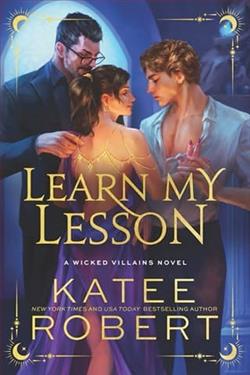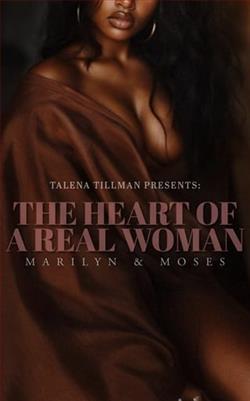Page 47 of Den of Iniquity
“Right now?” I asked.
“Right now,” she agreed.
So out to the garage we went. As I mentioned earlier, the garage had been built to hold three vehicles. One stall contained a bright red Maserati GranTurismo. Next to that was a sleek black Mercedes sedan, an S 400 that was a good decade newer than my S 550. Seeing the two parked vehicles made me wonder what her husband had driven to work. As for Alma Gregson’s pitiful collection of boxes? All six of them sat forlornly piled against the front wall of the empty stall. It was shocking to see how little was left behind after a whole lifetime of living.
Greta quickly located a box cutter and began slicing through the strips of packing tape that had sealed the boxes shut. One contained nothing but books, including six copies ofStrenuous Life, Roosevelt High School’s yearbook. The six years covered the time both Almaand her husband, Harold, had been in attendance. Among the books was a well-thumbed Holy Bible with the name Alma Adams written in cracked and barely legible gold leaf on the faded leather cover. The remainder of the books included a slew ofReader’s Digest Condensed Books. It had been years since I had run across any of those. There were also three baby books—one for James, one for Greta, and one for Loren. Greta glanced at those and quickly set them aside.
Several of the boxes contained a plethora of various knickknacks, each of which had been carefully wrapped in old newspapers. It was an oddball collection of quirky things people hang on to for no particular reason—a wooden Scandinavian horse, painted in bright orange and blue; a set of silver teaspoons from various countries; a massive crystal ashtray; a number of clay pots. But the one item that really caught my eye was a glass bottle with a ship inside it, except the ship in question turned out to be a miniature but clearly classic Chris-Craft.
“That was my dad’s,” Greta murmured when she saw it. “I had forgotten about it completely. Connor will want to display it somewhere on theMidlife Crisis.”
The next box contained all kinds of personal items—as though someone had swept through a bathroom and gathered up everything from medicine chest, counter, and drawers. A worn toothbrush, toothpaste, mouthwash, a hairbrush, a comb, hair spray, deodorant, shampoo, conditioner, makeup, and medications had all been tossed inside the box helter-skelter. In other words, that one turned out to be a bust, too.
By then I was losing heart because we kept coming up empty, and we were down to the last two boxes. But the next-to-last box was where we hit the jackpot. The topmost item, perched on everything else, was a polished wooden box. Someone has used a woodburning kit to draw a heart on top of the lid—a heart with two names written inside: Alma and Harold.
Greta picked up the box and allowed her fingers to absently trace their way around the heart.
“I had forgotten about this, too,” she said. “Daddy made the jewelry box in woodshop his senior year at Roosevelt. He gave it to my mom for Valentine’s Day that year.”
The moment she lifted the lid we both caught sight of what was inside—a still-sealed plastic bag with the wordsking county medical examinerprinted on the red label. After the bag had been handed to Alma Gregson, she had kept it without ever opening it. Through the clear plastic I could see that it contained three items—an old wallet, a dead cell phone, and an Elks ring.
I shot Greta a questioning look. “May I?” I asked.
She nodded. “Please,” she said.
With her approval, I tore open the seal and allowed the contents to slip out of the plastic and back onto the lid of the open box.
“Do you happen to have any latex gloves handy?” I asked.
“Not handy,” Greta answered. “I have a whole box of them, but it’s down in the boat shed. It’ll take a minute or two for me to go get it.”
It wasn’t long before she returned carrying an open box of gloves. Pulling out a pair, I slipped them on before ever touching the wallet. There wasn’t much inside it: a Washington State official identification card in Loren’s name, a Social Security card, and a photo of Loren as a kid—age six or seven at most—standing in front of a middle-aged couple I assumed to be Harold and Alma Gregson. That’s when I finally spread open the bill container at the back of the wallet, and there they were, as big as life—two hundred-dollar bills neatly tucked inside.
Greta saw the bills almost as soon as I did. “Where the hell did those come from?” she demanded.
She reached out to take them, but I quickly moved the wallet out of her reach.
“These came from whoever killed him,” I said. “These two hundred-dollar bills happen to be a serial killer’s calling card.”
All color drained from Greta’s face. “You’re saying Loren really was murdered then?”
“You’d better believe it,” I told her. “Now I need to get someone from Seattle PD to believe it, too. May I take these?”
“Sure,” she said. “You can have the wallet and the phone, but I want to keep Daddy’s ring. I’m the one who gave it to him, and it pissed the hell out of me that Loren got it, instead of me.”
That’s the weird thing about sibling rivalry. Just because one or the other of them dies, the problem doesn’t automatically go away.
Chapter 22
Seattle, Washington
Tuesday, March 3, 2020
By the time Greta and I finished, Sarah had been left alone for far longer than I intended, but at least the rain had stopped. When I opened the car door, Sarah scrambled her long-legged body into the front seat. That’s Sarah-speak forI need to go, and I need to go now!
Walking my dog right outside the Hallidays’ lakefront home didn’t seem like the proper thing to do, so I drove far enough up the driveway to be around the curve and out of sight before I stopped to let her out. Back in the old days, for evidence reasons, I used to carry a container of latex gloves around in my glove box for evidence-collection purposes. Now I carry a roll of doggie poop bags. To my immense relief one of those wasn’t necessary this time around.
Sarah’s pee pause gave me a few minutes to consider my next step. A quick check of my email revealed that no one other thanGreta Halliday had responded to the requests for additional interviews, so there was no sense in my waiting around for another case to surface. I needed to move forward with the ones I had, and that called for another trip to the Homicide unit at Seattle PD, because Seattle is where three of my four dead bodies had been found.















